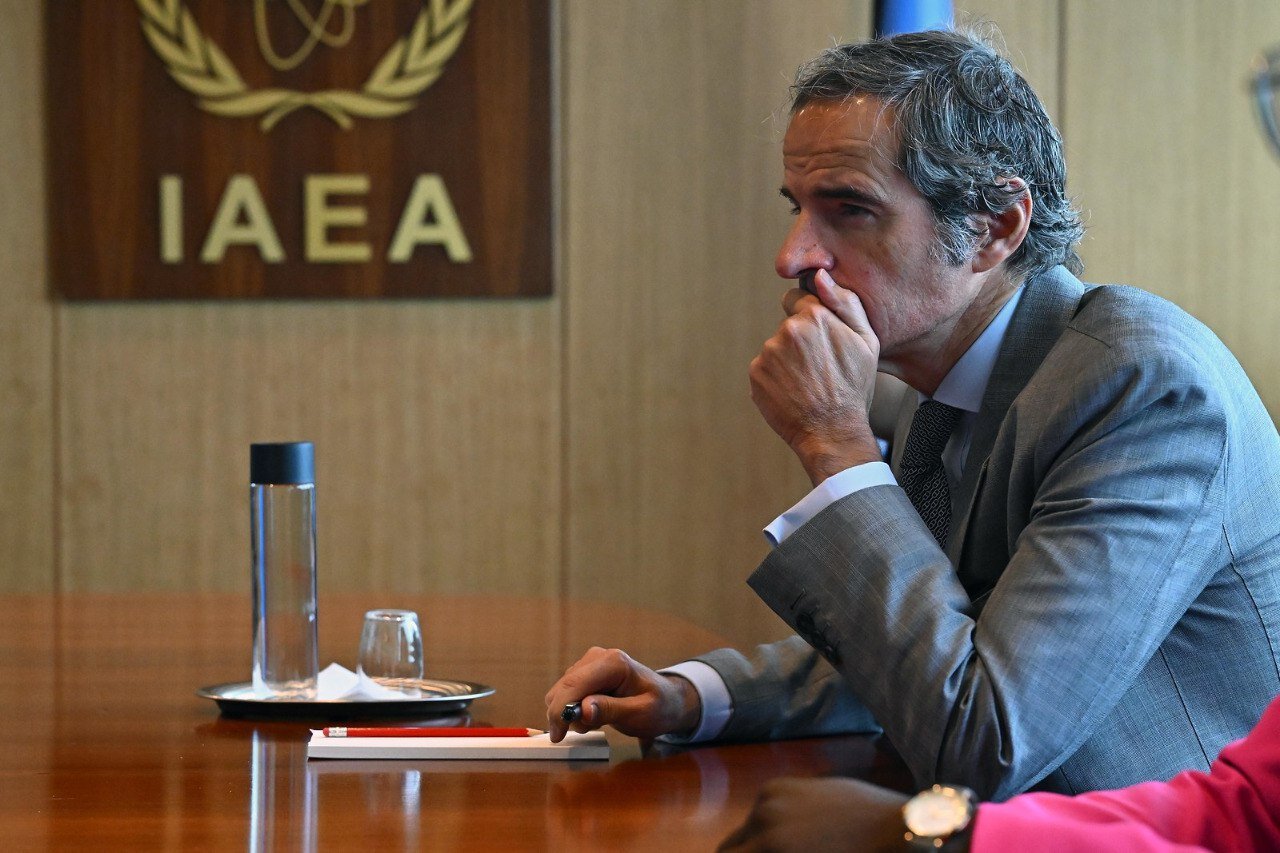ATLANTA, Georgia, United States.— “I am not a Nazi, I am the opposite of a Nazi,” The former president and Republican candidate for re-election, Donald Trump, said yesterday to defend himself against those who accuse him of being “fascist” and wanting to govern the United States in an authoritarian way if he wins the presidential elections in eight days.
Los personal attacks have become the norm in the final stretch of the closest elections in the contemporary history of the United States, reports the France Press agency.
The vice president and Democratic candidate Kamala Harris insists that her rival, former President Trump, is a danger.
These elections are not those of 2016 or 2020 because “there is a lot at stake,” he maintains.
TO UNDERSTAND BETTER: Kamala Harris warns that Donald Trump admires Hitler’s generals
Trump “is even more unstable and more unhinged”and now “he wants power without control,” declared yesterday at an event in Michigan, one of the seven states that can decide the electoral result along with Pennsylvania, Wisconsin, Georgia, North Carolina, Arizona and Nevada.
“And this time, There will be no one there to stop it, not even the Supreme Courtwho months ago told the former president that he is essentially immune no matter what he does in the White House,” he added, days after calling him a “fascist.”
“I’m not a Nazi,” Trump responds to Kamala for saying he admires Hitler’s generals
Trump has called migrants “murderers” and “terrorists” and says that “they poison the blood of the country,” but denied that he aspires to become an authoritarian leader in the style of “Hitler.”
“The new line of Kamala (Harris) and her campaign is that everyone who does not vote for her is Nazis, we are Nazis,” he said before a passionate crowd in Atlanta.
Trump He said his father used to tell him never to use the word nazi in Hitler and criticized Democrats for using both.
“He is Hitler and then they say he is a Nazi. “I am not a Nazi, I am the opposite of a Nazi,” he said in Georgia.
A few days ago his former chief of staff in the White House, John Kelly, declared to the “New York Times” that Trump fits the definition of a fascist and that he told him that Adolph Hitler “also did some good things.”
Kamala Harris has given credence to the statements of Kelly, a former Marine general, and has accused Trump of admiring “dictators.”
On Sunday, a new controversy broke out over racist comments made by a comedian at a Republican rally.
Related
#Nazi #Trump #responds #Kamala #calling #admirer #Hitlers #generals
How do personal attacks in the current election cycle compare to those in previous elections in terms of political polarization?
**Interview with Political Analyst: Understanding the Tensions in the Upcoming Elections**
**Host:** Welcome to our show. Today we delve into the recent exchange between former President Donald Trump and Vice President Kamala Harris regarding accusations of fascism. We have political analyst Dr. Rebecca Green with us. Welcome, Dr. Green!
**Dr. Green:** Thank you for having me. It’s a pleasure to be here.
**Host:** Let’s start with the context. Trump recently responded to allegations from Kamala Harris, asserting, “I am not a Nazi, I am the opposite of a Nazi.” What do you make of this statement in the light of current political tensions?
**Dr. Green:** Trump’s declaration is an attempt to distance himself from some very serious accusations. By categorically denying any association with Nazism or fascism, he aims to rally his base and mitigate concerns among undecided voters. Given the charged nature of the recent electoral climate, such defensive rhetoric is not surprising.
**Host:** Kamala Harris has described Trump as “even more unstable and more unhinged,” suggesting he seeks “power without control.” What implications does this have for the upcoming elections?
**Dr. Green:** Harris’s comments highlight a critical strategy for Democrats: framing Trump as a threat to democratic norms. By emphasizing instability and the potential for authoritarianism, she seeks to galvanize support among those who view the integrity of American democracy as being at stake. This election will certainly hinge on perceptions of leadership and character.
**Host:** Trump’s statement also included claims of immunity from consequences, stating, “There will be no one there to stop it, not even the Supreme Court.” How do you interpret this narrative?
**Dr. Green:** It reveals Trump’s belief that he can operate outside the traditional checks and balances that typically govern presidential power. This rhetoric could resonate with his supporters, who see him as a fighter against a corrupt system. However, it might also alarm moderates who fear the erosion of institutional safeguards.
**Host:** In your opinion, how are these personal attacks shaping this election cycle compared to those of 2016 and 2020?
**Dr. Green:** The personal attacks are indeed becoming more pronounced, reflecting the polarization in US politics. Unlike previous cycles, these elections are marked by heightened stakes as both sides feel emboldened to use stark, emotionally charged language. This dynamic far exceeds the contentious nature of past elections, contributing to a more divided electorate.
**Host:** Thank you, Dr. Green, for your insights on this ongoing political narrative. It’s certainly setting the stage for a heated election.
**Dr. Green:** Thank you for having me. It’s going to be an interesting few days leading up to the election!



